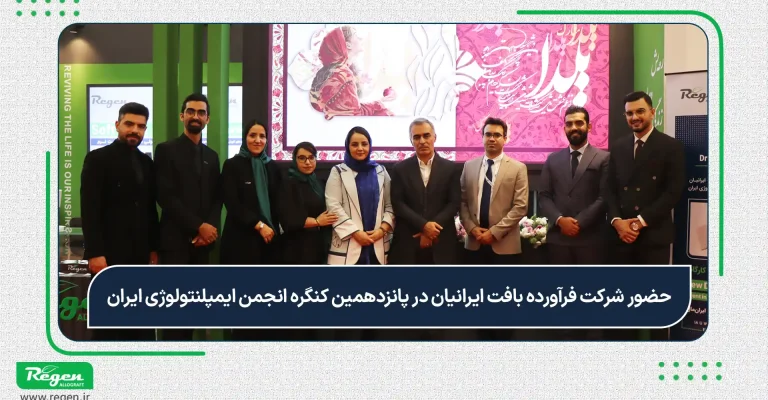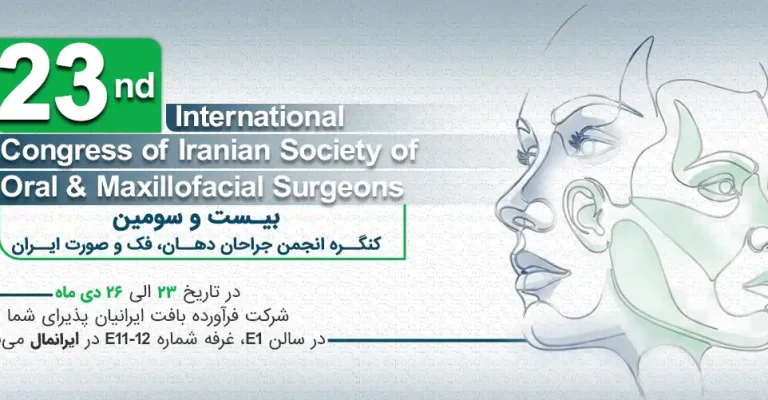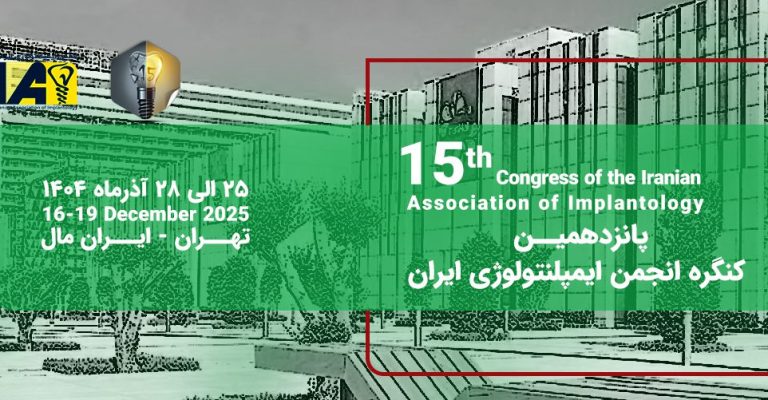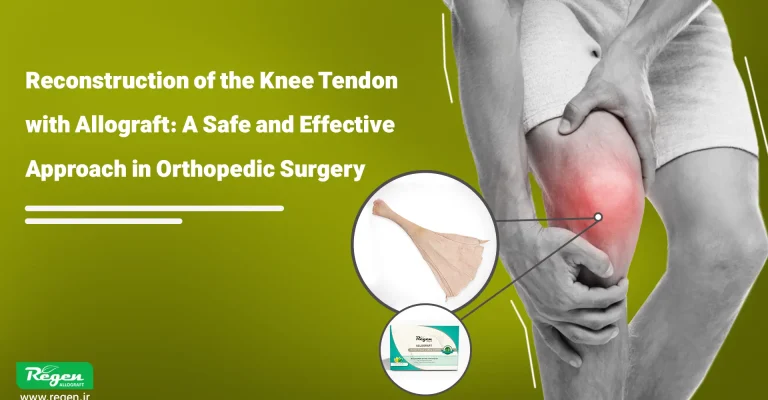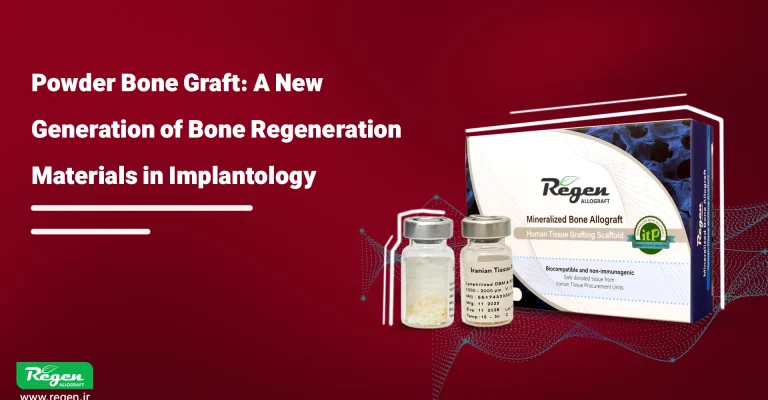The Art of Tissue Engineering: Mineralized Bone Allografts for Bone Regeneration
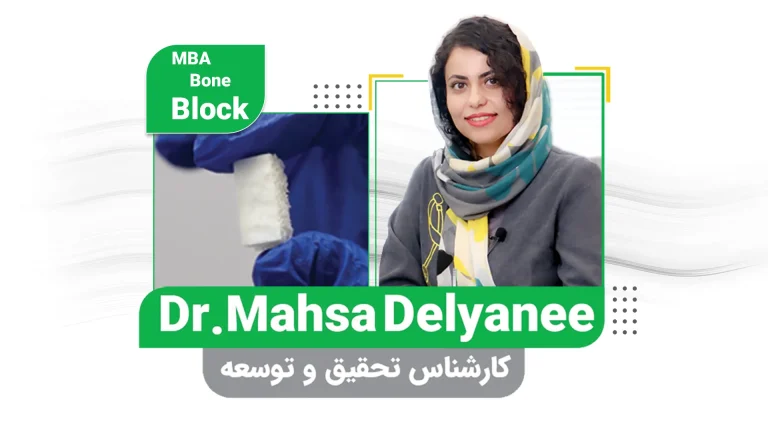
Table of contents
The Art of Tissue Engineering for Bone Regeneration
Are you searching for the best solution to reconstruct bone defects in your patients? An article titled “The potential of the mineralized bone allograft block as an appropriate candidate for bone tissue engineering in periodontology“ published in the prestigious Journal of Materials Research in 2023, offers an innovative approach in this field. This article was prepared by a team of researchers from the Research and Development unit of Iranian Tissue Product Company (Regen Allograft).
Furthermore, in the video you see in this post, Dr. Mahsa Delyanee, a PhD graduate in Tissue Engineering and a member of the Research and Development team at Regen Allograft, explains this article and examines the importance of mineralized bone allograft blocks in bone tissue regeneration.
Abstract of the Article
In the world of dentistry and periodontology surgeries, one of the fundamental challenges is the treatment of bone defects in various areas of the jaw and teeth. These defects may be caused by trauma, infection, tumors, or congenital diseases and significantly affect the patient’s quality of life. In such situations, the use of bone grafts as a suitable replacement for bone reconstruction becomes particularly important.
One of the best options in this field is mineralized bone allograft blocks, which, with their unique characteristics, have been introduced as an effective solution in bone tissue regeneration. This article, which is a summary of a scientific article published in this field, examines the role and benefits of these allografts in bone regeneration in periodontology and explains how they are used in dental surgeries.
Structural and Mechanical Characterization:
Structure and Porosity of Bone Blocks
Scanning Electron Microscope (SEM) images showed that the bone blocks have a porous and interconnected structure. The pore size varied between 120 and 930 micrometers, and the average pore size was calculated to be 375 ± 16 micrometers.
Porosity Analysis
Based on BET analysis, the porosity of the blocks was 76.6 ± 0.8%, which is within the optimal range for bone tissue engineering. This level of porosity improves cell penetration, nutrient exchange, and new tissue formation.
Mechanical Strength:
A compression test was performed to evaluate the mechanical resistance. The results showed:
- Compressive Modulus: 33.10 ± 0.34 MPa
- Ultimate Compressive Strength: 3.36 ± 0.15 MPa
- Fracture Stress: 3.17 ± 0.21 MPa
These values indicate that the blocks have sufficient resistance for application in cancellous bone tissue (such as the alveolar crest).
Bioactivity Evaluation
Apatite Crystal Formation
The blocks were immersed in simulated body fluid (SBF) for 3 and 7 days. SEM images showed the formation of calcium phosphate crystals on the surface of the blocks. The calcium-to-phosphorus (Ca/P) atomic ratio by EDX analysis was 1.7, indicating the formation of hydroxyapatite (HA). These results confirm the bioactivity and the ability of the blocks to induce osteogenesis and guide bone formation.
Biological Analysis
Decellularization Process Evaluation
To validate the decellularization process, hematoxylin and eosin (H&E) staining was performed. The images showed that the bone blocks were devoid of cellular genetic material, and the natural bone matrix was preserved. Therefore, the probability of an immune response in the host body is minimized.
Biocompatibility
The MTT assay was performed to evaluate the biocompatibility of the blocks. The blocks showed 92.74 ± 0.18% cell viability, confirming their biocompatibility. Furthermore, SEM images of the cells cultured on the blocks showed that the cells adhered well to the block surfaces after 1, 7, and 14 days.
Cell Proliferation
Using DAPI staining, cell proliferation on the blocks was evaluated after 7 and 14 days. The results showed that the number of cells attached to the blocks was significantly higher than the control group. This result indicates the proper interaction of the blocks with the cells and facilitates extracellular matrix formation.
Characteristics and Advantages of Mineralized Bone Block Allograft
Porous Structure and High Biocompatibility
One of the key features of mineralized bone block allografts is their porous structure, which allows for the penetration of cells, nutrients, and oxygen. This structure provides a suitable environment for the growth of osteoblast cells and the formation of new vascular networks.
Optimal Mechanical Strength
These allografts, with their suitable mechanical strength, can withstand the applied loads in various areas of the jaw and mouth, preventing fracture or deformation. This feature is especially important in surgeries related to the reconstruction of alveolar ridge height and width.
Reduced Risk of Immune Reactions and Infection
By using advanced processes such as gamma-sterilization and lyophilization, the risk of disease transmission and immune reactions is significantly reduced. Also, the preservation of biological factors in these allografts improves the bone regeneration process.
Applications in Dental Surgeries
Mineralized bone block allografts are suitable for various applications in dentistry and periodontology surgeries, including:
- Increasing alveolar ridge height and width
- Reconstructing bone defects caused by trauma or infection
- Preparing the implant site to improve its initial and long-term stability
Overall Conclusion
The results showed that the mineralized allograft bone blocks, in terms of structural, mechanical, bioactivity, and biocompatibility properties, have suitable conditions for use in tissue engineering and bone defect repair. These blocks provide a suitable environment for cell migration, adhesion, and proliferation and can be effective in bone tissue regeneration.
If you are a dental or periodontist surgeon looking for an effective solution for bone regeneration in your patients, using mineralized bone block allografts can be a suitable choice. For more information and product orders, please contact us.
How useful was this post?
Click on a star to rate it!
Average rating 0 / 5. Vote count: 0
No votes so far! Be the first to rate this post.
Relevant Posts

Free consultation
Do you need counseling?
The professional and specialized team at Allograft is ready to assist you


